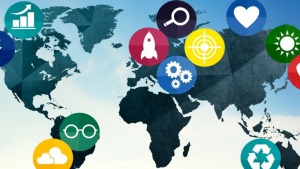Man City top web ranking of clubs by language, Barca, Bayern and Olympiakos follow
23rd, January, 2019
‘Think global act local’ is an ad agency rallying cry from the 1980s but it is still relevant today in an increasingly globalized commercial and media landscape. But how far do clubs, eager for global fans and regional sponsors, go locally?
A survey by OHT examined the websites of the 32 teams participating in the 2018 UEFA Champions League.
The study showed that 14 competing clubs have performed Chinese language localization, 12 clubs have localized to Spanish, 11 to Arabic, 9 to Japanese and French, and 8 to Indonesian.
A total of 26 teams representing non-English speaking countries (100% of such teams) have a website localized to English.
Of the teams surveyed Manchester City invests most heavily in their localization efforts. The Citizens’ website is localized for 12 languages other than English: French, Spanish, Portuguese, Indonesian, Chinese – Traditional and Simplified Mandarin, Arabic, Russian, Japanese, Korean, Malay and Thai.
Barcelona comes second with websites in nine other languages in addition to Spanish; English, French, Portuguese, Indonesian, Chinese – Traditional Mandarin, Arabic, Turkish, Japanese and Catalan.
German club Bayern Munich FC are tied in third with Greek giants Olympiakos with eight languages other than German and Greek, respectively. Olympiakos are noteworthy for their international approach and are the only club in the top 10 who don’t regularly feature in the last 16 of Champions League competition.
The rest of the top 10 is made up by Real Madrid, Paris St. Germain, Juventus, Manchester United, Liverpool, and Chelsea.
Sevilla is the fastest growing in terms of new languages, adding four new localized versions in addition to English to the club’s website: French, Arabic, Japanese and Chinese.
OHT said the most dramatic development has been for the Arab language. The number of clubs performing localization into Arabic has jumped from 6 to 11. French and Japanese came in second with the number of clubs localizing into those languages jumping from 5 to 9. In third place is Indonesian, with the number of clubs localizing their websites rising from 5 to 8, together with Korean, which shows an increase from 2 to 5 clubs. The number of clubs performing localization into Chinese has gone up from 12 to 14, to Russian from 4 to 6, and to Thai from 1 to 3. Just one club localized their website to Spanish, raising the total from 11 to 12. Portuguese grew similarly, with the total growing from 5 to 6.
Source: InsideWorldFootball








